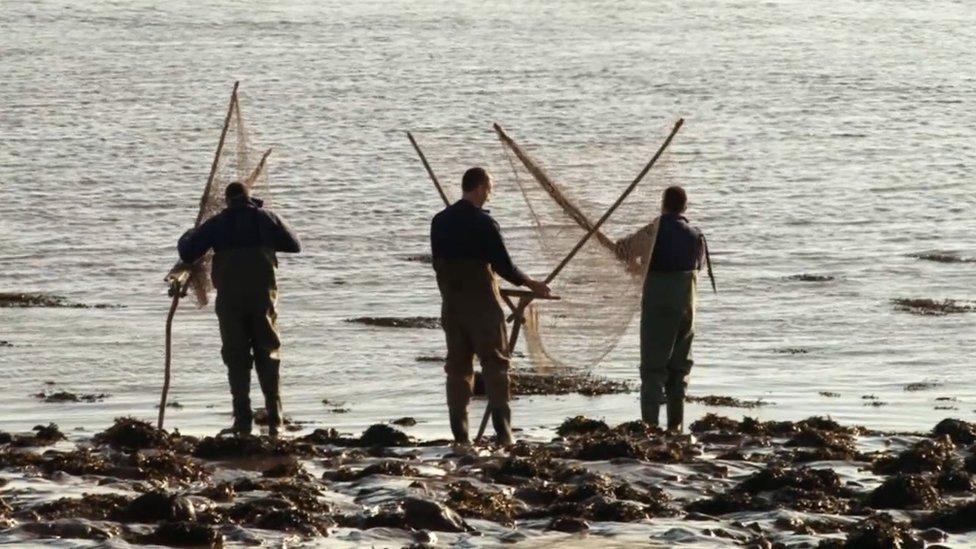Anglers banned from taking River Severn salmon catch home
- Published
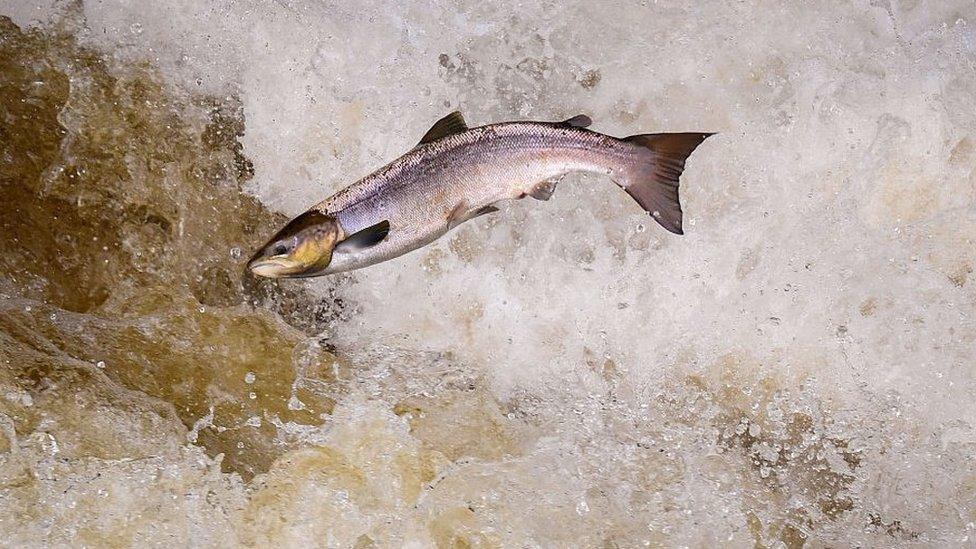
The Environment Agency said the new measures are to ensure more salmon get through to spawning grounds
River Severn anglers have been banned from taking their catch of salmon home with them under new by-laws.
The Environment Agency (EA) catch and release rules came into force along the length of the river this week, in a bid to protect dwindling salmon stocks.
The Severn Fisheries Group, which represents 30,000 anglers, had criticised the plans claiming it would encourage illegal fishing and poaching.
But the EA said salmon numbers were "so low" it needed to take action.
According to the agency, the river's salmon numbers are some of the lowest on record and "below sustainable levels".
Under the new by-laws, all salmon caught by rod in the River Severn and Severn Estuary will have to be put back into the water alive with "minimum injury and delay".
To improve the survival of released salmon, the use of bait or barbed hooks is also being prohibited.
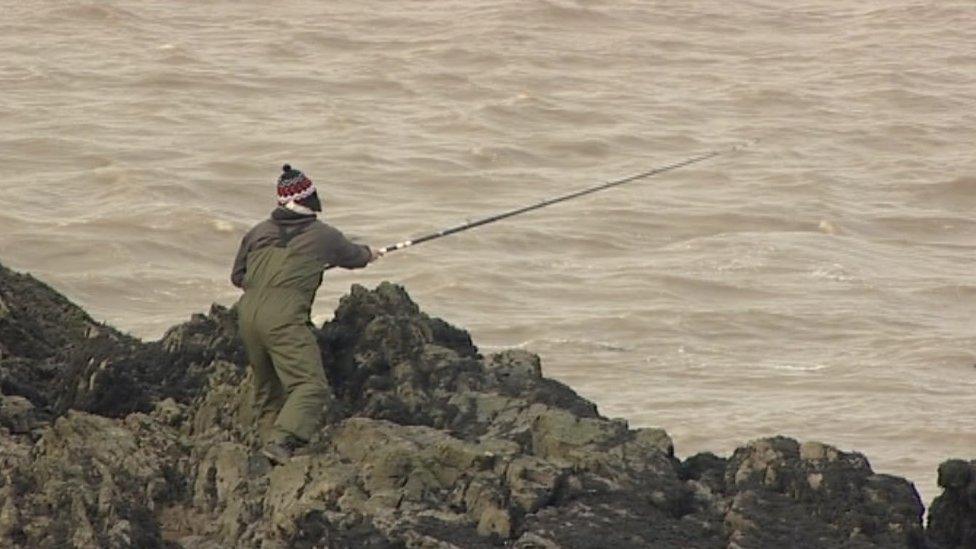
The River Severn is popular for many types of fishing
But Glyn Marshall, from Severn Fisheries Group, described it as an "anti-angling by-law" and a "poachers charter" when it was proposed back in March.
"If the by-laws are imposed, anglers will disappear off the river. They are the eyes and ears on the river, they watch over the river," he said.
"What will happen is anglers will disappear, illegal fishing and poaching will [increase] massively and more salmon will be killed."
'Make a difference'
Dave Hudson, from the EA, said it had been working with anglers through temporary and voluntary measures for the last couple of years to try to avoid the new rules.
"Unfortunately we've come to the point now that the salmon in the Severn is so low, we need to take some action," he said.
He said anglers were being asked to comply, while the agency's enforcement officers would be used "to make sure that it's done".
"The whole purpose of this is to make sure that more salmon get through to the spawning grounds," he said.
"Every one that gets through is going to make a difference now."
The River Severn is the longest river in Great Britain. It rises in mid-Wales, and travels through Shrewsbury, Worcester and Gloucester before flowing to the Bristol Channel.

Follow BBC West on Facebook, external, Twitter, external and Instagram, external. Send your story ideas to: bristol@bbc.co.uk , external
Related topics
- Published12 March 2021
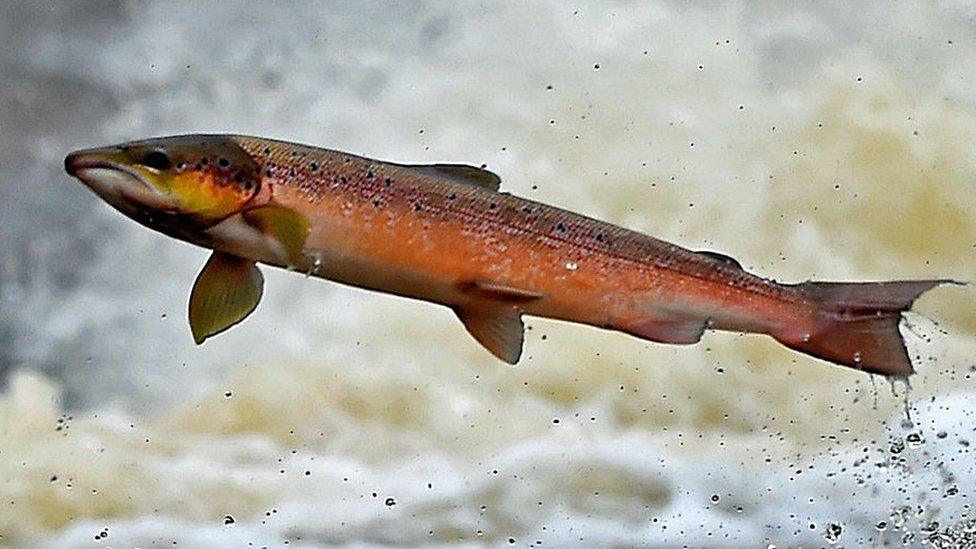
- Published7 January 2020
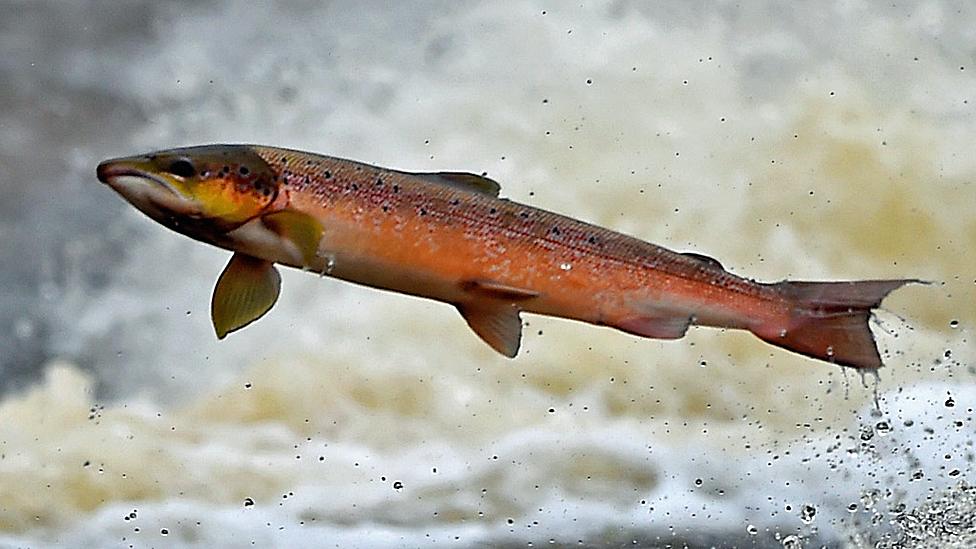
- Published3 June 2019
